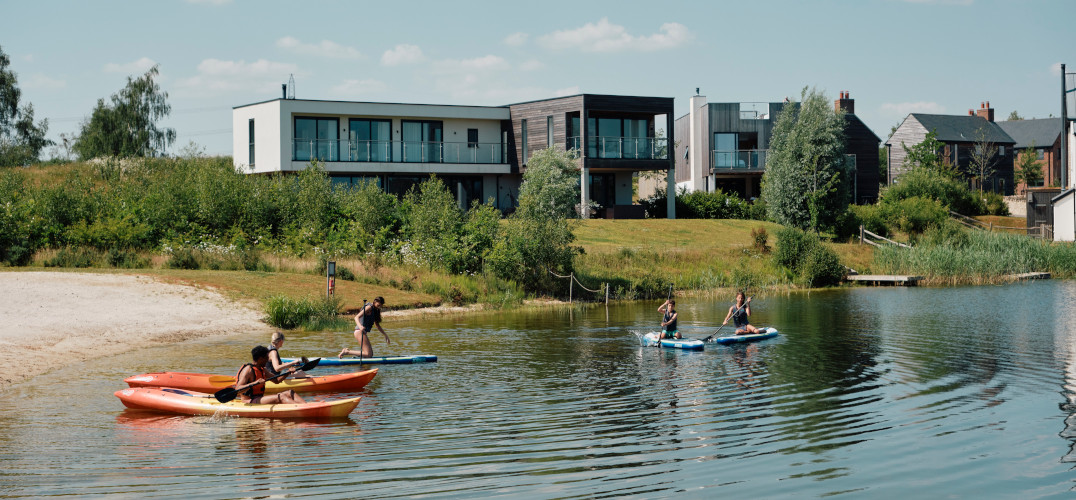What is holiday home insurance?
Holiday home insurance differs from standard home insurance by meeting more specific criteria. It is suitable for holiday homeowners who rent out their holiday homes to guests on a regular or short-term basis.
Holiday cottage insurance also helps to offset costs that could arise in an emergency. However, in some cases, specialised cover may be required to cover technicalities associated with holiday lets.
Is holiday let insurance a legal requirement?

While it is not legally required, holiday home insurance is highly recommended so you can be protected from any unfortunate events and associated costs that could affect your holiday home. The potential risks of not having proper insurance include increased vulnerability to theft, property damage, and guest complications. Whilst these are highly unlikely, holiday home insurance offers another level of safety and security to your investment.
Holiday let insurance can even extend to protecting properties' additional amenities, such as hot tubs, should they become broken or damaged. The main types of holiday home insurance are building and contents insurance; however, other components should also be considered when running a holiday let business.
Fortunately at Silverlake, Dorset, holiday home insurance is only required for a worst-case scenario, as the on-site team is on hand 24/7 to ensure your holiday home stays safe and secure.
The key components of holiday let insurance
These are the protection types most commonly included in holiday let insurance:
Building insurance
Walls, roofs, foundations and built-in fixtures are all safeguarded against natural disasters, accidental damage and vandalism. Permanent structures on your property are also included, ensuring complete protection for your investment property.
For this component, it is essential to check if your insurance covers:
• Property amenities/improvements: Coverage for additional appliances, swimming pools, fireplaces, hot tubs and more.
• Permanent property features: Including walls, roofs, foundations and built-in fixtures.
• External fixtures: E.g. garages and garden sheds
Before agreeing to buildings insurance, ensure you accurately assess what it would cost to rebuild your home, so you will be insured correctly and not underserviced. Additionally, it helps to know the minimum occupancy terms for your insurance and what to do if your property is empty over the winter.
Contents insurance
Whether you encounter burglary during the off-season or accidental breakage during a guest's stay, contents insurance will offer financial compensation for lost or damaged items. Contents insurance mitigates against accidental misfortunes and provides financial support for any repairs or replacements, alleviating the stress of unforeseen incidents and safeguarding against unexpected catastrophes, such as fires or other natural disasters.
For this component, it is essential to check if your insurance covers:
• Pets: If any damage occurs from pets, this is ideal for dog-friendly properties.
• Individual possessions: Whilst there is usually a capped amount, valued insured items are protected in this policy. However, this usually only extends to things outside of appliances.
• Theft: Coverage for burglary (forced/unforced entry) by trespassers or paying guests.
• Guests: Coverage if guests fail to pay for their stay.
• Accidental/deliberate damage to property: Coverage of third-party damage to property or furnishings by guests.
• Keys: Coverage for lost keys and the costs of updating locks and security features.
Public liability insurance
Public liability insurance serves as a safety net in case of any unfortunate incidents with guests. It protects you against costs that may be incurred. This component reimburses any expenses, should a guest suffer injury or distress from a property-related incident.
For this component, it is essential to check if your insurance covers:
• Guest injury or distress from property defects or property-related incidents.
• Property features: Coverage for main-selling features such as open fires, swimming pools and hot tubs.
• Damage with intent: Coverage for vandalism, trespassing and defacement of property.
• Flooring and stairs: Coverage for potentially hazardous areas where accidents may occur, e.g. steep stairs or hard tiles.
Check your policy's restrictions as you may need a specialist to provide the right cover for your holiday let.
Employers' liability insurance
You must obtain employers' liability insurance if you employ staff and cleaners for your property.
At Silverlake Dorset, a provider of luxury lakeside holiday homes, all maintenance and cleaning aspects can be provided directly, so you do not need to consider this if it is included in your holiday letting package. You should only consider this insurance if you choose your own cleaners or maintenance staff.
Additional insurance components
Covering loss of rental income, alternative accommodation, and emergency travel expenses are additional insurance components that, whilst not compulsory, can offer extra protection if your property becomes uninhabitable in the event of a disaster.
Should unforeseen circumstances occur, such as property damage or a natural disaster that causes the cancellation of a booking, you should be covered for any financial losses in rental income.
Insuring an empty holiday home
Insurance providers typically consider this factor in their guidelines for certain extended periods of time. However, it is always safest to review this form of coverage carefully. No business is immune to damage and the risk of unoccupancy, particularly during the winter. It’s therefore essential to check over clauses that validate this protection.
Winter maintenance checks are also vital to future-proof your property against any damage that could inflicted by colder weather, such as temperature and water tank maintenance.
Finding the best cover for your needs
Investing in this vital coverage is a great starting point to safeguard your finances and ensure the long-term enjoyment of your holiday home. By evaluating your property and potential risks, you can help receive the proper protection for your holiday home and experience stress-free holiday letting. Each insurance policy varies, so it is crucial to research what components you are covered for and what insurance meets your criteria and is well-received by other holiday homeowners.

By enquiring about your policy where you are uncertain, you can find out what your coverage extends to and resolve any confusion on the matter. Any other information you request will help you be confident that your property will be adequately safeguarded. When choosing coverage, try to get several quotes and discuss policies with multiple insurance providers to find the best coverage for your budget and property type.
Finding the right level of building and contents insurance
Selecting insurance tailored to your specific needs and property features requires thoughtful consideration from you and your insurers. Determining the appropriate building and contents insurance level depends on your property's valuation, ranging from total content replacement to rebuilding costs.
By choosing the right insurance, you can rest assured that your property will be fully protected and not underinsured in an emergency.
Recommended holiday let insurance providers
An insurance provider for your holiday let we recommend is Clear Insurance Management. Clear Insurance is an insurance company with fifty years of history and detailed experience dealing with holiday homes on the Silverlake Estate and beyond.
Start your holiday letting journey at Silverlake
Equipping your property investment with the proper protection is a brilliant starting point to running a successful holiday rental, covering all the critical components for stress-free hosting. With smart investments in mind, why not choose a holiday home in one of the UK's most luxurious and sought-after locations? Silverlake, Dorset has a team on-site 24/7 to minimise risk to your holiday home.

Embark on your holiday letting journey with Silverlake; you'll be in the hands of experts who can advise on every detail you need to get set up. Nestled within the glorious country landscapes of Dorset, Silverlake Estate provides many lakeside holiday properties with unique on-site amenities to attract tourists every season. Silverlake takes care of the entertainment, from lakeside views and scenic nature reserves to the exclusive Hurricane Terrace and Spa, meaning you and your guests can relax and reap the rewards of your Dorset holiday home.
Ready to choose your dream holiday home? Contact our property team regarding Dorset holiday home sales, and we will assist you in finding the ideal property.
The information contained in this article is accurate at the time of writing, based on our research. Rules, criteria and regulations change all the time. Nothing in this article constitutes financial advice. Please always consult your accountant or solicitor for all financial, taxation or legal matters.


